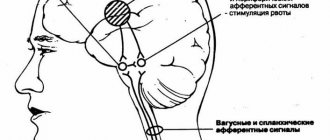Work that requires complete dedication, household chores and caring for family, communication with friends and family, visiting beauty salons and fitness centers in order to maintain beauty and health. And most of us try to do all this in 24 hours a day. As a result, we experience stress.
It is very important to recognize stress in time. It is important to know yourself and be able to determine when your level is beyond your limits, because you can get used to stress and make it part of you. It can become normal and you won't even notice how harmful it can affect you. Stress will not only make you feel like life is meaningless, but it will also increase your risk of various diseases.
What is stress
Stress is a completely normal response of the body to overwork or threat. At the same time, the body tries to resist in every possible way, as a result of which we suffer. When this protection works normally, it helps a person to be cheerful, energetic, concentrated and on a pedestal. But stress often has a detrimental effect on our mental and physical health.
Photo on Unsplash
Stress is a long-term, continuous, depressing emotional tension. When growing multitasking does not allow you to relax for a minute. When you constantly need to look for solutions, here and now. When everything seems global and urgent.
Signs of emotional stress
The concept of emotional stress was first introduced by the physiologist Hans Selye in 1936. By this, he meant a reaction unusual for the body in response to any adverse impact as a way of adapting to changed conditions. Due to the influence of stimuli (stressors), the body's adaptation mechanisms are in tension. The adaptation process itself has three main stages of development - anxiety, resistance and exhaustion.
Signs of emotional stress will appear in different people to varying degrees of severity.
- Increased irritability
- Tearfulness
- Increased heart rate
- Change in breathing rate
- Loss of control over your reactions and behavior
- Anxiety
- Memory and concentration problems
- Sudden jumps in blood pressure
- Feeling of fear, feeling of despair
- Weakness
- Excessive sweating
- Muscle tension (clamps)
- Feeling short of air
- Constantly feeling tired
- Headache and muscle pain
- Increase or, conversely, decrease in body temperature
- Changes in sleep patterns—drowsiness or insomnia
- Changes in appetite
- Depersonalization - the feeling of being outside the body
Signs and symptoms of stress
Each person experiences stress differently. The common thing about the symptoms of stress is that it affects our mind, body and behavior. A person becomes aggressive, has a bad mood, suicidal thoughts in his head, and very often, due to nervous disorders, gets sick.
After stress, an individual becomes overly emotional and cannot sit still. Or, on the contrary, too self-contained, silent, distant, passive, unemotional. The person seems to be paralyzed by stress and at the same time seething inside. Here are a few signs of stress in a person:
- inability to concentrate on one thing;
- inability to prioritize – everything seems important;
- irritability, anxiety, anger at the slightest reason;
- sleep problems (long periods of falling asleep, insomnia);
- sudden opposite emotions (laughter, tears for no particular reason);
- problems with appetite;
- chronic fatigue that does not go away even after sleep.
Causes of emotional stress
Stress can be caused by both sudden and ongoing negative events in a person’s life. If a tragedy occurs, or, conversely, a person has been a prisoner of a difficult situation for a long time without the opportunity to rest or switch attention from the traumatic situation, a kind of “mental burnout” may occur.
At the same time, the source of serious emotional stress can be both real traumatic events and a person’s excessively negative perception of various, for most people, events that are not something serious. In this case, the risk group will be people with an easily excitable psyche, suspicious, rigid, and unable to switch.
Specific causes of emotional stress for most people:
- death or serious illness of a loved one
- disaster
- war
- job loss
- serious illness
- divorce
- change of residence
- loss of source of income
- breaking up with a loved one
Consequences of constant stress
- Heart attacks . Stress leads to increased blood pressure. Every time you get stressed, your blood pressure goes up. In addition to this, your blood flow also increases significantly, which leads to the release of triglycerides and cholesterol into the blood. People who smoke and are obese are also at higher risk of serious heart problems.
- Choking . Children who are regularly stressed are at higher risk of developing respiratory diseases such as asthma. Studies in children have shown that stress can significantly worsen asthma. There is also evidence to suggest that chronic stress in parents can negatively impact the health of their children.
- Gastritis . Some people with chronic stress suffer from gastritis, which further complicates their condition. Stress-induced gastritis, also known as stress-related erosive syndrome, can cause superficial hemorrhages and mucosal erosion in patients who are seriously ill and in people exposed to stress.
Sign No. 4. Uncontrolled shopping
We constantly strive to buy no matter what. The main thing is to make a purchase. The item may turn out to be unsuitable and will eventually be returned, but the shopping experience is repeated over and over again. This is an attempt to cheer up at least for a minute, to give yourself a gift.
Naturally, the joy of acquiring many unnecessary things does not last long. Then the feeling of loneliness, sadness, and melancholy returns. And behind this lies long-term chronic stress.
How to avoid going crazy during a pandemic? 8 tips from the country's chief psychiatrist Read more
How to relieve stress: ways to deal with stress
It is very important not to lose composure and control. Manage your emotions using the following methods. Start in order:
- Take a moment, sit down . Ask yourself about the importance of the problem that is gnawing at the moment. How will its decision or lack of decision affect the situation in 1 year, 5 years? The answer will help you understand the importance of anxiety.
- Recording thoughts . Phrases, sentences, individual words - jot everything down on a draft. This will be a distraction during the acute period. Read what you wrote the next day - this way you will understand the significance of the events and the actions taken.
- Stimulate your nerves . An effective method is to run your index finger horizontally across your lips. It is based on the physiological response of the parasympathetic nervous system. Quickly and effectively soothes.
- Muscle tension . Gather your nerves! Tighten all your muscles, clench your fists, and grit your teeth for 10 seconds. Feel how your body switches and reacts with prolonged relaxation.
- Try any classic methods : a walk in the fresh air, relaxation in the bath, herbal tea, gourmet food or delicious chocolate, physical activity, an hour for a hobby, chatting with friends, and so on.
- Work on yourself . Try to turn negative into positive. Don't let stress overcome you. Spilled coffee on yourself? Think of a spoiled item as unnecessary, old, inconvenient, ready to be thrown away a long time ago.
- Try to interrupt the overwhelming stressful thought . Clap your hands. Say out loud that you will definitely return to her later. Promise yourself to remember the problem at a certain hour.
- Be available . Do not turn off communications. Don't ignore other people's attention. On the contrary, run away from the desire to hide from everyone. Chat on social networks. And then have a good cry.
Agree, there is nothing complicated in such techniques. If you turn to them for several days during times of stress, they will definitely help. Even one technique can give the desired effect, if the situation has not become critical.
Getting stress under control will reduce your risks of developing Alzheimer's disease, depression, asthma, gastritis, obesity and heart disease. All it takes is a little joy, treat yourself and relax. Even though you may think it is impossible to completely get rid of stress, small lifestyle changes will definitely improve your condition.
Photo by Artem Beliaikin on Unsplash
Medical treatments are great for dealing with stress. Of course, the amount of time you can devote to procedures will depend on your schedule and responsibilities. However, even one hour a week spent at the spa can be very beneficial. Most salons offer a calm and relaxing environment, which is exactly what people suffering from extreme stress need. Such procedures also help to lose weight.
To keep stress to a minimum, you should adopt a low-sugar diet. Sugar increases blood glucose levels, which leads to temporary nervousness and anxiety. An excellent alternative to sweet foods such as cookies, candies and cakes - fruits and berries. They contain cortisol, which helps reduce stress.
How to learn to control your psycho-emotional state?
How to maintain health and increase stress resistance?
- Don't take on several things at once. Complete every task you start without being distracted by extraneous factors. If your job does not allow you to do only one thing, make a schedule for the priority of tasks and, in the time allocated for a task, do only it.
- If you are nervous about a situation, ask yourself if there is something you can do. If not, then you need to come to terms with the fact that this situation and its result are beyond your control and try to distract yourself with something else. If you can, no need to worry, just do it.
- Try to develop independent self-esteem. Of course, listening to a negative assessment and scolding is unpleasant - but, if you think about it, this assessment has nothing to do with you. This is just the opinion of another person, which can be taken into account if the person is important to you, but should not be taken as an objective reality. Evaluate yourself.
- Set realistic goals for yourself. Not the easiest, but achievable. When determining the deadline for completing a task, reserve 15-20% of the time for force majeure situations and the human factor, then delays will not unsettle you.
- Light physical activity helps stabilize the psycho-emotional state - nothing calms you down like a light jog or swimming.
- Go to bed no later than 11 pm, try to sleep at least 8 hours.
- Organize your workplace in such a way that it is pleasant to be there and easy to find everything you need.
- Eat the right foods. For the stability of your psycho-emotional state, it is very important to eat a balanced diet. B vitamins are especially important.
- At least once a week, do something that makes you happy. Meet with friends, dance, eat delicious food, play computer or board games.
If nothing helps, and you feel that it is difficult for you to cope with stress on your own, contact a specialist; you may have depression. In this case, you need qualified treatment.
Relieving stress: advice from a psychologist
In order to relieve stress, you need to be able to recognize, accept and deal with its causes:
- Try to react less to minor irritants.
- Look at the problem as a challenge, a way to become better, more experienced.
- Accept the things you cannot control.
- Surround yourself with people with a positive attitude who look at the glass and claim it is half full.
- Breathe more in the fresh air, do yoga, read a motivational book.
- Go in for sports, then you will not have time for bad thoughts, plus improve your memory and health.
- Get enough sleep, listen to rhythmic music and spend time with loved ones.
- Give yourself a hobby.
What is happiness from a psychological point of view?
In the modern world, the concept of happiness is very often replaced by the concept of owning something or someone: “When I buy an apartment or a new car, get a new job, make a breakthrough in my career, get married, when I have children, then happiness will come." Often people delay happiness, spend their lives waiting for it, and end up disappointed because it never comes.
According to one definition, happiness is not the destination, but the taste of the journey. We are talking about a certain way of living life without getting bogged down in extreme negative emotions, without experiencing extreme attacks of rage, envy, and hatred. How can this be achieved?
Photo: istockphoto.com
Unfortunately, in the modern world, most people live as if on autopilot - without regaining consciousness, without taking their eyes off the smartphone screen, looking through email, videos on YouTube. In the morning they get up, wash, drink coffee, get into the car, turn on the radio or music. At the same time, they are never left alone with themselves, their body, their emotions. The path to happiness lies through awareness: you need to be present here and now, be in the moment and live each in its fullness.
Exercises to relieve stress
These exercises help relieve muscle tension and improve your emotional state. Thanks to this, they promote restful and sound sleep. And good sleep is the key to good morning well-being, good health and beauty.
- Exercise 1 . Sit on the floor with your legs wide apart. Look at your left foot. Place the palm of your right hand on your left side. Taking a deep breath, raise your left hand, exhaling, move it to the right. Repeat the exercise with your right hand.
- Exercise 2 . Bend one leg under you. Exhaling, bend towards the extended leg, trying to reach its foot as much as possible. Repeat the exercise, changing legs.
- Exercise 3 . Lying on your back, pull your legs bent at the knees to your chest, clasping them with both hands. To better stretch and relax your muscles, gently rock back and forth.
- Exercise 4 . Lying on your back, cross your left leg bent at the knee over your right and press it to the floor with your right hand. Repeat the exercise, changing legs.
Sign #3: Drink alcohol to relax
Pouring a glass of wine in the evening, a person tells himself that he has survived a difficult day, and now he can relax. But in reality, every drink of alcohol is an attempt to escape tension in the head, muscles, and emotional state, disguised as a “celebration” of the end of the day.
As a rule, the first glass is followed by a second, gradually this develops into a daily ritual, and then into hidden alcoholism. I note that the stress from such actions only becomes deeper, because it dulls “on the surface”, and the real situation worsens.
Evening yoga for stress
If you like yoga, two simple poses will allow you to achieve complete relaxation and help you calm down after a busy day.
- Pose 1 . Sit on the floor with your legs crossed. Place your hands on your knees. Try to focus all your attention on the pose you have taken. The base of the spine should be as close to the floor as possible, and the head should be raised high. Imagine that your spine is stretching.
- Pose 2 . Lying on your back with your legs wide apart, place your hands, palms up, about 15 cm from your torso. Slowly rotate your limbs, first outward, then inward. Turn your head from side to side. Imagine that your legs are separated at the knee joints, that your head is separated from your shoulders. Breathe with your stomach, imagine that you are being pressed to the floor by the force of gravity and with each inhalation it becomes stronger and stronger.
Sign No. 5. Insomnia or “hibernation”
People stopped sleeping normally. Games on the phone, TV series, other evening activities - all this is just a mask that helps not to recognize the obvious fact: having problems falling asleep.
The other side of the disorder, which can also be encountered during stress, is that you want to sleep around the clock and it is impossible to get up on time in the morning. The body tries to fall asleep, save energy and wake up in a new reality, where things are already going well, but this does not happen. As a result, strength disappears, work becomes unbearably hard, and there is no desire to get out of bed, meet and communicate with friends.
When experiencing insomnia, on the contrary, a person becomes exaggeratedly active: having fun, watching movies, spending the night anywhere except at home. Because he knows that when he returns, he won’t be able to sleep until late at night. Antidepressants or alcohol do not help in this situation, since you first need to work with the causes of tension.
Psychosomatics in action. Why do we get sick and how to avoid it Read more
The modern urban environment, where day merges with night, is a difficult test for the nervous system. Even if it seems that everything is fine with you, it is worth taking a closer look to see if your psyche has fallen into a stress trap. Then you will be able to start working on this dangerous problem in time, help yourself or return a loved one back to a happy life.
Dance
By performing voluntary dance movements, we release the tension that has accumulated during the day. Be relaxed and move slowly, making movements that you enjoy.
Photo by David Hofmann on Unsplash
Let the music sound inside you. Belly dancing, for example, is a great at-home fitness activity that can help relieve stress.











